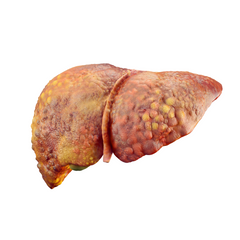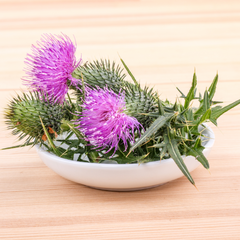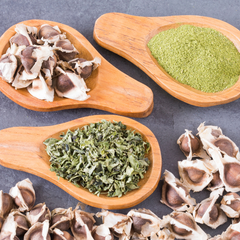Unveiling the Remarkable Therapeutic Potential of Silymarin and Other Key Ingredients for Liver Health
Introduction
A serious worldwide health issue that affects people of all ages and backgrounds is liver disease. Managing liver disease has become a top priority for healthcare systems around the world as a result of factors like unhealthy lifestyles, obesity, viral infections, pollutants, and genetic predispositions on the rise. The therapeutic potential of Silymarin, a compound found in milk thistle and other essential components for liver health, will be discussed in this blog post as we examine ground-breaking studies in this area.
Silymarin (Milk Thistle) and Chronic Liver Disease: A Historical Interest
In the scientific community, there has been a considerable amount of interest over the years in silymarin, a compound derived from milk thistle, in relation to its potential association with liver health. Silybin, the major active compound in silymarin, has been shown to possess antioxidant and anti-inflammatory properties, which has led researchers to explore its potential role in supporting liver well-being. Silymarin has been studied for its potential role in conditions like alcohol and viral hepatitis, non-alcoholic fatty liver disease (NAFLD), liver cirrhosis, and hepatocellular carcinoma (HCC).
The Epidemiology of Alcoholic Liver Disease

A number of liver problems brought on by excessive alcohol intake are referred to as alcoholic liver disease (ALD). Alcohol consumption increases the chance of developing ALD, which comprises alcoholic cirrhosis, alcoholic hepatitis, and alcoholic fatty liver disease (AFLD). ALD can be affected by a variety of variables, including genetics, viral co-infections with hepatitis, starvation, obesity, and environmental factors. Despite the seriousness of ALD, mortality rates have decreased recently as a result of enhanced public health campaigns and a greater understanding of alcohol's negative effects.
References: The Epidemiology of Alcoholic Liver Disease
Silymarin (Milk Thistle) Inhibits the Progression of Fibrosis in the Early Stages of Liver Injury

Liver fibrosis often presents as an accumulation of fibrous tissue in the liver, typically as a response to long-standing liver disease and dysfunction. The potential role of Silymarin in offering some support during the early phases of liver fibrosis has been an area of interest for researchers. In specific experimental models, such as those involving rats with CCl₄-induced liver fibrosis, Silymarin has been observed for its potential benefits with oxidative stress, fibrosis, and inflammation. The exploration of an optimal dosage for Silymarin, especially in a clinical setting, remains ongoing, with some studies looking into how varying doses might influence the liver's response.
References: Silymarin (Milk Thistle) Inhibits the Progression of Fibrosis in the Early Stages of Liver Injury
Effects of Artichoke Leaf Extract on Lipid Profile

The influence of artichoke on lipid profiles has been a topic of discussion, prompting more in-depth research such as systematic reviews and meta-analyses. Based on these studies, there were observations suggesting that artichoke might have had an association with reduced triglyceride (TG) levels, total cholesterol (TC) levels, and low-density lipoprotein cholesterol (LDL-C) levels. However, the potential impact on high-density lipoprotein cholesterol (HDL-C) levels seemed less pronounced. These insights hint at the possibility of artichokes playing a role in supporting lipid profiles, but as always, further exploration is essential.
References: Effects of Artichoke Leaf Extract on Lipid Profile
The Potential Benefits of Red Beetroot Supplementation
Red beetroot, known for its high content of nitrate and betalain pigments, has been explored for its potential health benefits. Some studies suggest beetroot might be associated with increased nitric oxide availability, which could be of interest for conditions where NO deficiency is a concern, like hypertension and endothelial dysfunction. Additionally, beetroot has been looked into for its potential therapeutic effect as a mitigator of oxidative stress and inflammation.
References: The Potential Benefits of Red Beetroot Supplementation
Conclusion
In closing, Silymarin, artichoke, and red beetroot are garnering interest in discussions around liver health and overall well-being. Silymarin, sourced from milk thistle, has shown indications of antioxidant, anti-inflammatory, and antifibrotic properties which might be of interest for those exploring liver health support.
Similarly, the potential roles of artichoke leaf extract and red beetroot in relation to lipid profiles and possibly addressing oxidative stress and inflammation have been topics of exploration. While these observations are encouraging, more in-depth research and thorough clinical evaluations are essential to further understand the potential contributions of these natural ingredients. When included as part of a balanced diet and mindful lifestyle, there's a suggestion that they might support liver health and general well-being.

